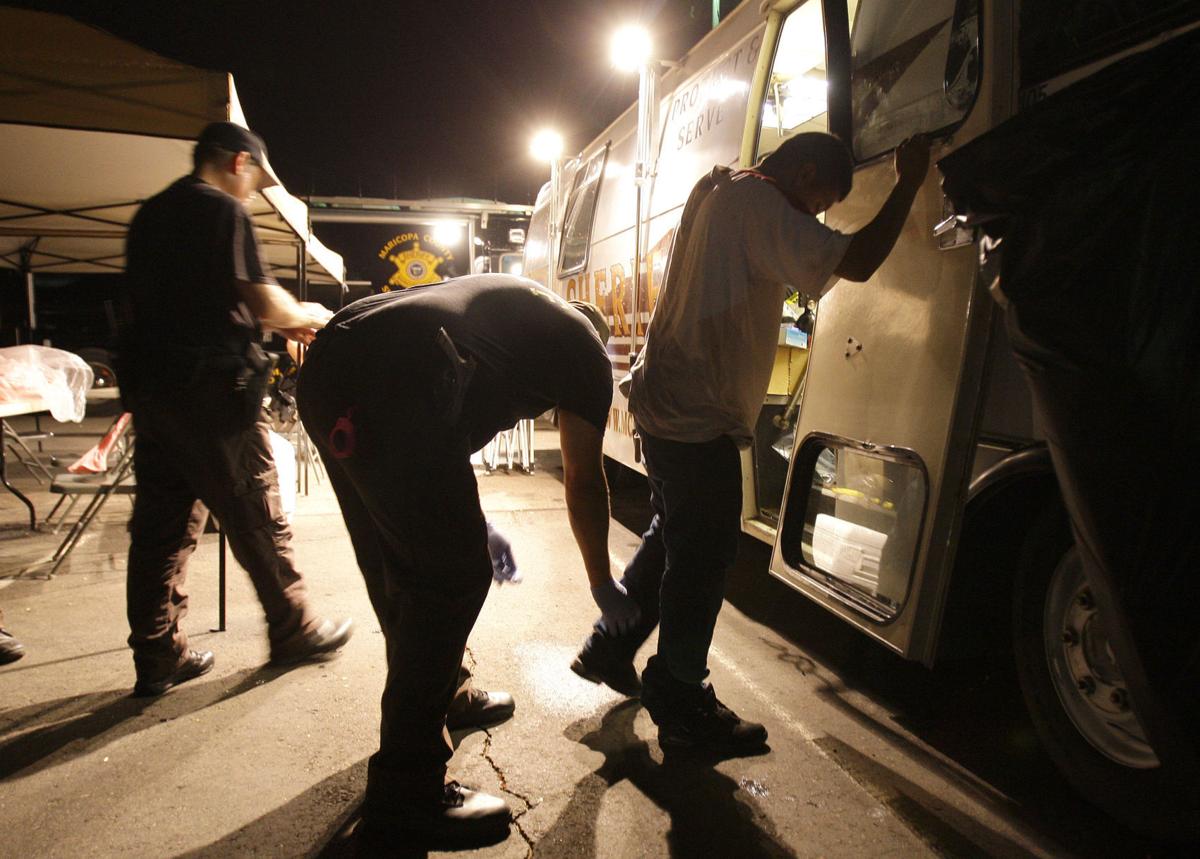PHOENIX — Attorney General Mark Brnovich has no legal right to look into the policies of the Phoenix police in dealing with people suspected of being in this country illegally, a lawyer for the city is charging.
In a letter to Brnovich, Jean-Jacques Cabou said a 2016 law requires him to investigate when a legislator asks whether any ordinance, regulation, order or other official action taken by a city council runs afoul of state law.
But he said the complaint by Sen. John Kavanagh, R-Fountain Hills, concerns a police department “operations order.”
“The order is not an ordinance or regulation, nor was it an action adopted or taken by the governing board of a city,” Cabou told Brnovich. “Therefore your office lacks jurisdiction to investigate or report.”
And Cabou said even if Brnovich is empowered to review the order — a point he is not conceding — he said Kavanagh’s complaint “lacks merit.”
He said the order simply details the procedures Phoenix’s police chief determines are necessary for officers to lawfully carry out their duties. And he noted the U.S. Supreme Court has said there are “limited circumstances in which state officers may perform the functions of an immigration officer.”
“The complaint is an unfounded attempt by a legislator from Fountain Hills to micromanage the police of a city he neither lives in nor represents,” Cabou told Brnovich. “Neither Arizona law nor common sense allows him to do so.”
If Brnovich disagrees and concludes the order about how police deal with suspected undocumented immigrants violates state law, he can seek to withhold the city’s state revenues.
The implications stretch beyond Phoenix.
Several other cities, including Tucson, have similar policies about what officers can and cannot do when they encounter people who they believe may be in this country illegally. Those policies could be voided if Brnovich determines they are precluded by state law and courts uphold his conclusions.
Kavanagh’s complaints are based on SB 1070, a 2010 state law designed to give police more power to detain and arrest those in this country illegally.
Some of the provisions were declared illegal by the U.S. Supreme Court. But the justices did leave some provisions intact.
One says when an officer stops someone for any reason, he or she must make “a reasonable attempt ... when practicable, to determine the immigration status of the person.” Another section says police cannot be prohibited from sending or receiving information from federal officials to determine if someone is in the country legally.
Kavanagh finds fault with Phoenix’s directives to officers on when they must contact Immigration and Customs Enforcement and when they cannot ask immigration-related questions during traffic stops.
He said another order illegally keeps police and school-resource officers from asking immigration questions or contacting ICE while on school grounds.
“This blanket ban makes schools sanctuary sites, where anyone — child, adult, student, staff member or visitor — in the country illegally is protected from otherwise lawful immigration inquiries mandated by law,” the senator contends.
Cabou told Brnovich that the 2016 law empowering him to investigate the actions of city councils does not extend to what in effect are policies enacted by the Phoenix police chief, who alone is entitled to alter them.
Anyway, Cabou said, nothing in the order tells police officers to violate SB 1070 but instead instructs them on how and when to enforce immigration laws.
For example, he said the procedures for school-resource officers recognize that their primary duty is to “foster trust and cooperation when interacting with students and provide for the overall safety and security of everyone on school campuses.” Cabou said that means placing emphasis on being educators and mentors, acting “as enforcement officers when necessary.”
He also said it would be “impractical” for officers to inquire about the immigration status of everyone they stop for a traffic violation. Also, he said, police cannot use someone’s race or ethnicity in deciding who to question about their legal presence in the country.





